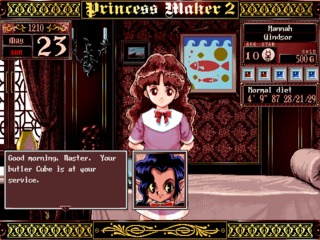Computer games set in fantasy worlds have always played a central role in gaming history, evolving across different genres and platforms. From early rudimentary experiments to today’s complex narrative and strategic experiences, fantasy has been a recurring theme that allows players to immerse themselves in magical worlds filled with heroes, monsters, and mysteries.
One of the earliest titles to explore this genre was Adventure (1980) for the Atari 2600, a pioneering action-adventure game that, despite its simple graphics, introduced fundamental elements such as exploration and item collection to progress. Around the same time, text-based games like Zork: The Great Underground Empire (1977-1980) allowed players to experience deep and complex adventures solely through reading and interacting with a text parser, giving rise to the text adventure genre.
During the 1980s, fantasy found its way into side-scrolling brawlers with games like Barbarian (1987), which featured brutal one-on-one battles in medieval arenas, and into turn-based RPGs such as Wizardry (1981) and Might and Magic (1986), which established key mechanics like character progression and dungeon exploration. With the rise of 16-bit computers, dungeon crawler games like Dungeon Master (1987), Eye of the Beholder (1991), and Ambermoon (1993) introduced a first-person perspective that deeply immersed players in fantasy worlds, featuring more sophisticated mechanics and real-time or semi-real-time combat.
Among the most influential RPGs of the 1990s was Ultima VII: The Black Gate, which raised the bar for narrative complexity and world interactivity, offering an unprecedented level of simulation. But fantasy wasn’t limited to role-playing games—real-time strategy (RTS) titles like WarCraft: Orcs & Humans in 1994 took the genre in a new direction, putting players in command of armies of humans and orcs in large-scale battles.
Even first-person shooters found inspiration in fantasy. Games like Heretic (1994) and Blood (1997) blended classic FPS mechanics with gothic and magical settings, offering spells and enchanted weapons instead of traditional firearms.
Fantasy has always been an incredibly versatile genre, adapting to every kind of gameplay and technology. Whether exploring enchanted lands, battling legendary creatures, or commanding armies in epic wars, the appeal of fantasy settings has made these games timeless classics in the history of video games.














